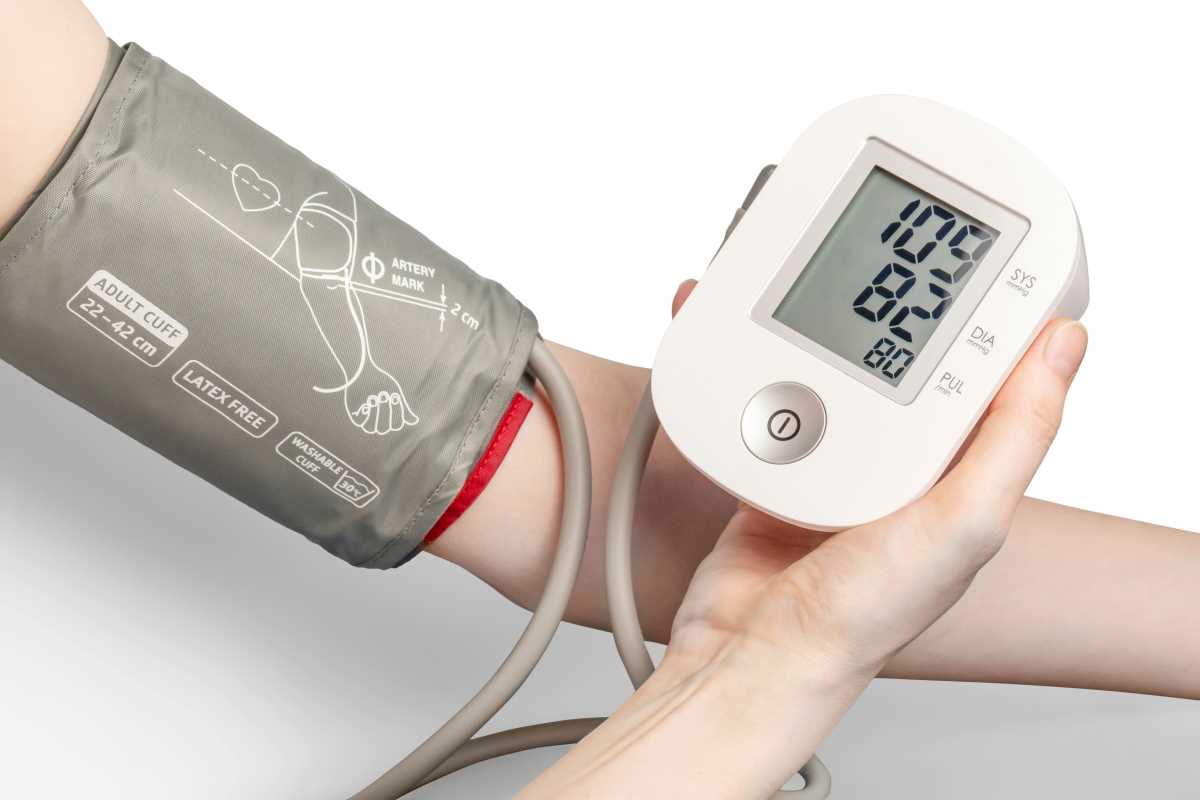Beta blockers have been a cornerstone of high blood pressure treatment for over 50 years, but that doesn't mean they've stayed the same. While you might think of beta blockers as "old school" medications, the reality is that researchers and pharmaceutical companies have been working steadily to make these drugs more effective and easier to tolerate. If you've had concerns about beta blockers in the past—or if your current medication isn't working as well as you'd hoped—the improvements being made today could change your entire treatment experience.
For adults managing hypertension in their middle years, understanding these advancements is particularly important. Your body's needs change over time, and what worked well in your 40s might need fine-tuning as you enter your 50s and beyond. The good news is that modern beta blockers are more sophisticated, targeted, and patient-friendly than ever before.
Understanding How Beta Blockers Work
Before diving into the improvements, it helps to understand what beta blockers actually do in your body. These medications block the effects of epinephrine (adrenaline) on your heart and blood vessels. Think of it like installing a governor on your heart's engine—it prevents your heart from racing and reduces the force of each heartbeat, which ultimately lowers your blood pressure.
Traditional beta blockers worked throughout your entire body, affecting not just your heart but also your lungs, liver, and other organs. This broad action often led to unwanted side effects like fatigue, breathing problems, and cold hands and feet. The challenge for researchers has been maintaining the blood pressure benefits while minimizing these troublesome effects.
The Evolution to Cardioselective Beta Blockers
One of the most significant improvements in beta blocker technology has been the development of cardioselective medications. These "selective" beta blockers primarily target the heart while largely leaving other parts of your body alone.
Metoprolol and Atenolol: Leading the Way
Metoprolol and atenolol were among the first successful cardioselective beta blockers. These medications focus specifically on beta-1 receptors found mainly in heart tissue, while avoiding beta-2 receptors in the lungs and other organs. This selectivity means you're less likely to experience breathing difficulties, making these medications safer for people with mild asthma or respiratory conditions.
Clinical studies consistently show that patients taking cardioselective beta blockers report fewer side effects while achieving similar blood pressure reductions compared to older, non-selective options. A large-scale study published in the American Journal of Hypertension found that patients switching from non-selective to selective beta blockers experienced a 40% reduction in fatigue-related side effects.
Nebivolol: The Next Generation
Nebivolol represents an even more refined approach to cardioselective beta blocking. This medication not only selectively blocks heart receptors but also has vasodilating properties—meaning it helps relax blood vessels directly. This dual action often results in better blood pressure control with fewer side effects.
Research from the European Society of Cardiology demonstrates that nebivolol maintains sexual function better than older beta blockers, addressing one of the most common patient concerns about this medication class. For many patients, this improvement in quality of life makes the difference between sticking with their medication and abandoning treatment altogether.
Third-Generation Beta Blockers: A Paradigm Shift
The most exciting developments in beta blocker technology involve third-generation medications that combine beta blocking with direct blood vessel relaxation. These drugs represent a fundamental shift in how we think about beta blocker therapy.
Carvedilol: Multiple Mechanisms
Carvedilol blocks both alpha and beta receptors, providing blood pressure reduction through multiple pathways. By blocking alpha receptors in blood vessels, carvedilol causes direct vessel relaxation, while its beta blocking activity reduces heart rate and contractility. This combination often produces more significant blood pressure reductions than traditional beta blockers alone.
Studies show that carvedilol is particularly effective for patients with both high blood pressure and heart failure. The COPERNICUS trial demonstrated that patients taking carvedilol had a 35% reduction in death risk compared to those taking placebo, highlighting the medication's broader cardiovascular benefits.
Labetalol: Balanced Approach
Labetalol offers a unique balance of alpha and beta blocking activities, making it especially useful for patients who need rapid blood pressure control. This medication is often used in hospital settings but is increasingly prescribed for outpatient management when other beta blockers haven't been fully effective.
Addressing Metabolic Concerns
One area where beta blockers traditionally struggled was their impact on blood sugar and cholesterol levels. Older beta blockers sometimes worsened diabetes control and raised triglyceride levels, creating a frustrating situation for patients managing multiple health conditions.
Metabolically Neutral Options
Newer beta blockers like nebivolol and carvedilol have much less impact on blood sugar control and may even have slightly favorable effects on cholesterol profiles. Research published in Diabetes Care showed that patients with diabetes experienced better glucose control when switched from older beta blockers to these newer agents.
This improvement is particularly important for the growing number of patients who have both hypertension and diabetes. Instead of choosing between good blood pressure control and stable blood sugar levels, patients can now achieve both goals with a single medication.
Combination Therapies: Maximizing Benefits
Perhaps the most significant advancement in beta blocker therapy involves combining these medications with other drug classes to create more comprehensive treatment approaches.
ACE Inhibitor Combinations
Fixed-dose combinations that include a beta blocker and an ACE inhibitor provide complementary blood pressure reduction mechanisms. The ACE inhibitor helps relax blood vessels while the beta blocker reduces heart rate and contractility. Studies show these combinations often achieve blood pressure targets that neither medication could reach alone.
Popular combinations like metoprolol plus lisinopril or carvedilol plus enalapril are now available in single pills, improving convenience and medication adherence. Research indicates that patients taking combination pills are 30% more likely to stick with their treatment compared to those taking separate medications.
Diuretic Partnerships
Beta blockers combined with thiazide diuretics address blood pressure through different mechanisms—the diuretic reduces blood volume while the beta blocker slows the heart rate. These combinations are particularly effective for patients whose blood pressure doesn't respond adequately to single-drug therapy.
The ACCOMPLISH trial, which followed over 11,000 patients, demonstrated that certain beta blocker-diuretic combinations reduced cardiovascular events by 20% compared to other combination approaches.
Personalized Beta Blocker Selection
Modern medicine increasingly recognizes that one size doesn't fit all when it comes to blood pressure treatment. Researchers are developing tools to help doctors select the best beta blocker for each individual patient.
Genetic Considerations
Pharmacogenetic testing can now identify patients who metabolize certain beta blockers differently. Some people break down metoprolol very quickly, requiring higher doses or more frequent dosing. Others metabolize it slowly, increasing the risk of side effects with standard doses.
While genetic testing for beta blocker selection isn't yet routine, several medical centers are beginning to incorporate this information into treatment decisions. Early results suggest that genetically-guided beta blocker selection reduces side effects by approximately 25%.
Age-Related Adjustments
Researchers have developed age-specific guidelines for beta blocker use, recognizing that older adults often need different approaches than younger patients. Extended-release formulations help maintain steady blood levels throughout the day, reducing the peaks and valleys that can cause side effects.
Improving Tolerability and Quality of Life
Modern beta blocker development prioritizes maintaining patients' quality of life alongside blood pressure control. This focus has led to several important improvements.
Exercise Tolerance Enhancement
Newer beta blockers are designed to interfere less with exercise capacity. While older beta blockers could make physical activity feel more difficult, medications like nebivolol actually improve exercise tolerance in some patients by enhancing blood flow to working muscles.
A study in the Journal of the American College of Cardiology found that patients taking nebivolol maintained better exercise performance compared to those on traditional beta blockers, encouraging continued physical activity—a crucial component of blood pressure management.
Cognitive Function Protection
Research has addressed concerns about beta blockers affecting memory and thinking. Studies show that cardioselective beta blockers, particularly nebivolol, may actually have protective effects on cognitive function by improving blood flow to the brain.
Discussing Options with Your Healthcare Provider
With so many beta blocker improvements available, having an informed conversation with your healthcare provider becomes essential. Here's how to make the most of that discussion.
Prepare Your Questions
Before your appointment, think about your current experience with blood pressure medication. Are you experiencing side effects that interfere with daily activities? Has your blood pressure been harder to control lately? Are you concerned about how your medication might interact with other health conditions?
Share Your Complete Health Picture
Be honest about any other health conditions you're managing, including diabetes, respiratory issues, or heart problems. Also mention any over-the-counter medications or supplements you take regularly. This information helps your doctor select the beta blocker that's most likely to work well with your overall health profile.
Discuss Your Lifestyle Goals
If staying active is important to you, mention this priority. If you're concerned about sexual side effects or cognitive effects, bring these up directly. Your doctor can choose beta blockers that are less likely to interfere with the aspects of life that matter most to you.
Disclaimer: The content provided on SuperHealthyTips is for informational and educational purposes only. This information is not intended to be a substitute for professional medical advice, diagnosis, or treatment.







